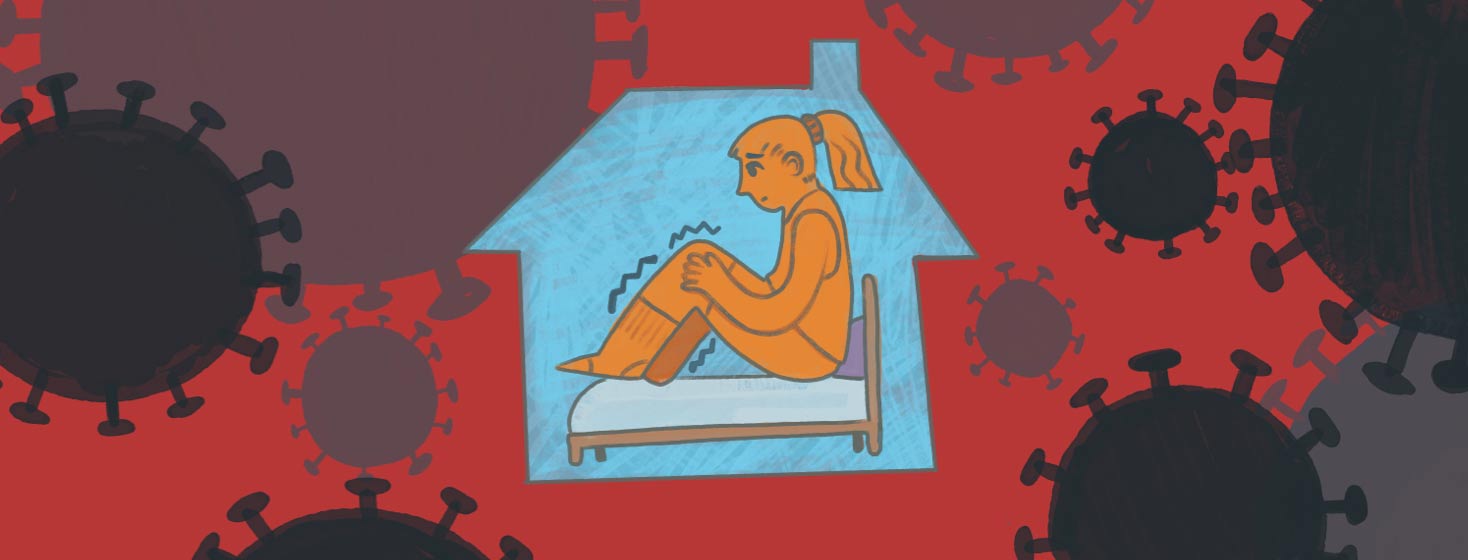The Impact of the Pandemic on My RLS
In one of my previous articles, I mentioned I had COVID-19 and for the entire duration, my RLS was really acting up. I’m still not quite positive why that is, since I slept all the time.
I came across some research that looked into the effects of the pandemic on restless legs syndrome (RLS). There was similar research on migraine disease I found interesting and wrote about elsewhere — mostly because, as a continuous stressful event in our lives, it seems to have an impact. Sort of a lasting impression. And not a good one at that.
Some research into RLS and the impact of the pandemic
The key points in the study I found were:1
Inactivity
Long-term lockdowns led to a lot less physical activity, and that meant an increase in inactivity. I know if I am excessively inactive, my RLS can act up a lot sooner in the evening. This could be a trigger for some people with other comorbid conditions. For us, it could worsen our sleep and symptoms.
Psychological impact
Lockdowns brought with them psychological factors that affected our mood, including overall increase in our stress levels — all of which affect sleep and, again, affects our RLS.
Exercise
Exercise can help with some effects of sleep disorders like RLS. But as mentioned, physical activity was seriously reduced. Because it can help improve sleep and boost mood, the study concluded exercise from home if a lockdown occurs would help with the increased RLS symptoms.
Pandemic stressors piled up like Jenga blocks
I don’t think that research was exactly stunning or amazing. I think, though, that we might not realize the effects that stressors — and perhaps specifically pandemic-related stressors — are having on us.
Even if we are incredibly resilient, long-enduring stressful events do impact us over time. I am quite resilient, but since the start of the pandemic, it was layered problems one after the other. As I tried to solve one, 8 more would crop up like a leaning tower of Jenga. Almost to the point of absurdity.
Financial stressors and job hunting
Many people had financial stress. We certainly did. My spouse is the primary income earner since I have become disabled, and he got laid off. Here in Canada, there were some benefits we could use, thankfully, but it was a difficult time.
So many people were laid off that trying to find a job with lockdowns happening all the time seemed so impossible when 1000 other people were applying for that exact job. When my spouse found work eventually, it was because he changed fields entirely.
My sleep quality and quantity declined
I would be astonished if it didn’t change my quality of sleep, to be honest. And actually, I recall that during that first year I was having serious sleeping issues with quantity of sleep time. I had no consistency in my sleep; an hour here, wake for a few. A nap. Wake. Another few hours. Extremely sporadic. When you’re worried about just about everything, you just can’t stop thinking about how to fix it.
So my RLS at that time also became extremely erratic. It seemed it didn't know when to flare up because my brain couldn’t quite figure out when I should be sleeping.
Impacts on our mental and emotional health
I worried so much about so many things in 2020, and I just carried that over into 2021. I have had major depressive disorder in my recent past, so I’m careful to monitor my moods, and I do a lot of different things to manage my moods as well.
Still, I sure had to work at it, because I was coping with a lot of emotional stress in those years. Even if I coped well, it still was a lot to deal with — like being on an emotional roller coaster ride I didn't ask for.
Everyone else also seemed highly emotionally strained. You didn’t want to push anyone’s buttons. There was a lot of uncertainty with the pandemic. And, like most people, I’m not fond of a huge amount of uncertainty in my life at all times.
Remaining active and receiving rehabilitation
I know this also affected my sleep quality. I know frequently waking up and not being able to get back to sleep, over and over again, was partly because of this.
The only thing I did well on was physical activity. The reason I have been off work was because of a vestibular disorder and during the pandemic, I finally got into a vertigo clinic to do vestibular rehabilitation. That was a lot of exercise, for sure!
Certainly, I agree with the research about how the lockdowns themselves affected us, which then impacted our RLS. I also think the pandemic overall affects us, which affects our sleep and RLS. I don’t think we will even realize the extent of its influence on us until years from now.

Join the conversation